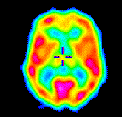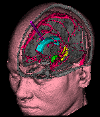 Psychological Effects of Caffeine
Psychological Effects of Caffeine 
 Psychological Effects of Caffeine
Psychological Effects of Caffeine 
Caffeine, which is among the mostly
widely used and accepted drugs, is not recognized as a potent central nervous
system stimulant, although it is. Caffeine causes an array of psychological
effects due to the chemical action of this drug. Caffeine stimulates
the central nervous system first and at higher doses it
effects the cortex, medulla and even spinal cord.
This page is designed to familiarize readers to the negative psychological
effects caffeine can cause.
Caffeine can cause numerous amounts
of psychological effects depending upon the individual and the concentration.
Children are much more susceptible to caffeine intake symptoms and should
drastically limit their intake. One or two cups of coffee (150-250
mg of caffeine) can have seriously detrimental
effects on one's mental state. An intake of just
100 mg of caffeine can induce such symptoms as dizziness, anxiety, agitation
and irritability, restlessness, insomnia, and headaches in some people.
Those who regularly ingest caffeine, whether in pills, food, or beverage,
would be less susceptible to these effects at a low concentration but have
other issues to face.
Caffeine is a drug and with repetitive
drug intake the body can form a dependence. This can occur within
6 to 15 days of exposure. If caffeine is not consumed regularly after
this period one may
feel lethargic or apathetic until the drug is ingested.
Individuals addicted to caffeine begin to show symptoms of withdrawal 12-24
hours after intake is stopped. Depending on the individual, the usual
symptoms of withdrawal include headache, fatigue, apathy, and even anxiety
is sometimes expressed. These symptoms peak around 36 hours and continue
for up to a week after caffeine deprivation. The body's mechanism
of withdrawal can be reduced through dose tapering and/or analgesics.
Large doses of caffeine can cause another
type of disorder known as caffeinism. In a human, an intake of 650
mg of caffeine per day can lead to this syndrome. This amount can
lead to aggressiveness and psychotic behavior. This syndrome is indistinguishable
from the mental disorder anxiety neurosis
making the individual appear confused or confounded with
true psychotic states. Although much caffeine must be ingested for
caffeinism to set in, sleep is very vulnerable to even the slightest caffeine
intake.
Sleep can be greatly effected by ingestion of caffeine before bed. In most cases caffeine causes individuals to take a longer time to fall asleep, decreasing the total amount of sleep received. This effects poor sleepers more drastically than heavy sleepers. Caffeine has also been determined deeper to affect stages of sleep and sometimes affects the REM stage of sleep.
Individuals on medication should consult
their doctor about drug interactions involving caffeine. Caffeine
should be avoided or used cautiously with such drugs as dextramphetamine,
methylphenidaten, nicotine, pemoline, psuedoephedrine, phenylpropanolamine
and sympathomimetics. Combining
these medications with caffeine can cause nervousness,
irritability, and insomnia.
Home
- Chemistry - Physiological
Effect
Psychological
Effect - Conclusion
Other
links - Contact